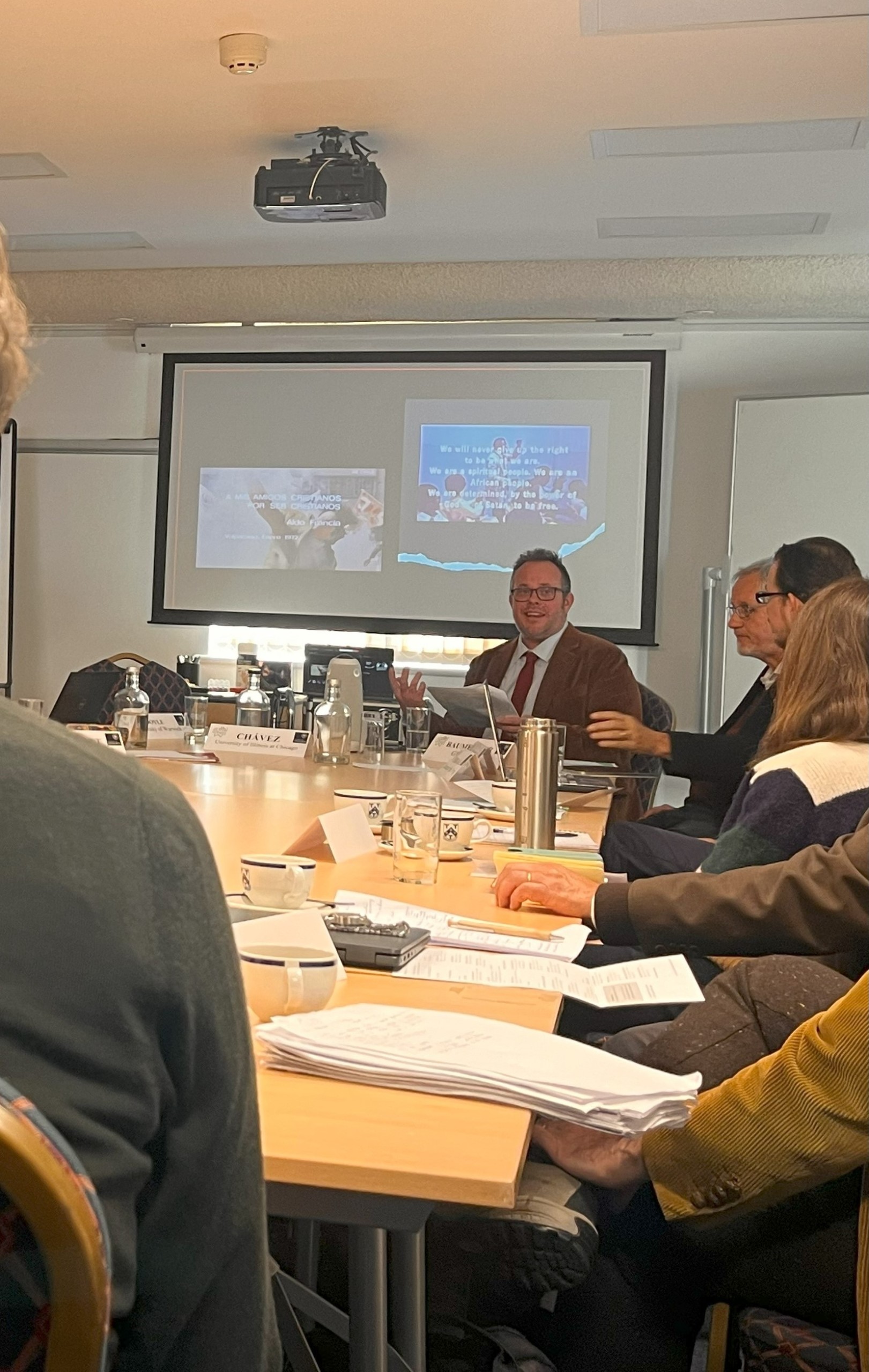EUGENE, Ore. – Dr. Stephen Andes, a proud alumnus of Oxford University, recently returned to speak at a prestigious conference at St. Antony’s College and the Latin American Centre, Oxford University, on November 21-22. The conference, titled Catholicism and Latin America’s Cold War, brought together leading scholars to explore the complex relationship between religion and politics in Latin America during the Cold War.
 Dr. Andes’ paper, titled “Filming Theologies of Liberation: The Politics of Contestation in Aldo Francia’s Ya no basta con rezar and St. Clair Bourne’s Let the Church Say Amen!,” examined how film has been used to shape and challenge theological narratives of liberation. Through his analysis of these two influential films, Dr. Andes explored the ways in which they reflect and contest political and religious movements in Latin America.
Dr. Andes’ paper, titled “Filming Theologies of Liberation: The Politics of Contestation in Aldo Francia’s Ya no basta con rezar and St. Clair Bourne’s Let the Church Say Amen!,” examined how film has been used to shape and challenge theological narratives of liberation. Through his analysis of these two influential films, Dr. Andes explored the ways in which they reflect and contest political and religious movements in Latin America.
“The Cold War era in Latin America was marked by intense political and religious controversy. By examining these films, I wanted to shed light on how liberation theology was represented and challenged in the media, reflecting broader societal debates,” said Dr. Andes. “It was an honor to return to Oxford, a place that shaped my academic journey, and share my research with a community of scholars committed to understanding these critical intersections of faith, politics, and culture.”
The conference was organized by renowned scholars Jaime Pensado of Notre Dame University, Daniel McDonald, Fellow at St. Antony’s College, Oxford University, and Simon Unger of the German Historical Institute of Rome. The papers presented at the conference, including Dr. Andes’ contribution, will be published by the University of California Press as an edited volume of chapters, each exploring a different aspect of the Cold War and Catholicism in Latin America. The volume, slated for release in 2026, will expand the reach of this significant scholarly discussion.
Dr. Andes’ return to Oxford highlights the lasting impact of his doctoral studies and his continued dedication to exploring the intersection of faith, politics, and culture. He brings that knowledge and experience to his teaching at Bushnell University, particularly in courses such as History of Christianity and Faith and Politics, where students engage with value systems, ideas, and the interplay of religion and political life across historical contexts. This connection between scholarship and teaching reflects Bushnell’s commitment to academic rigor and equipping students with a deep understanding of history’s role in informing faith, leadership, and cultural engagement.